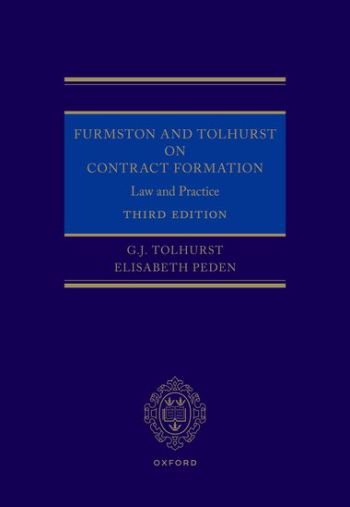We are now closed for the Christmas and New Year period, returning on Monday 5th January 2026. Orders placed during this time will be processed upon our return on 5th January.

This new and updated edition provides a scholarly and practical analysis of the legal principles which govern the formation of contracts in English law, offering those involved in litigation and in drafting contracts a guide to the application of those principles in practice.
The book comprehensively reviews all the classical rules governing contract formation with extensive coverage of difficult areas such as certainty, conditional contracts, good faith negotiations, auctions, tenders, on-line contracting, and the assessment of conduct and silence in contract formation. It also discusses the efficacy, problems, and rules around modern contracting, in particular the use of heads of agreement, letters of intent, letters of comfort, and the methods of resolving a battle of the forms. This latest edition has been updated to reflect significant court decisions such as Devani v Wells [2019], which ruled on the extent to which implied terms can be used to overcome issues of uncertainty and completeness, as well as Crown Melbourne Ltd v Cosmopolitan Hotel (Vic) Pty Ltd [2016] which considered the extent to which issues of contract formation involved issues of law or fact.
Although this work is based on English law, the authors draw upon decisions in other jurisdictions such as Australia, Canada, the United States, Singapore, and New Zealand, where these inform the development of principles in English law.